
About überlube
Silicone best kind of lube for optimal vaginal health

$0.00

Do you know how different personal lubricants can affect the health of the vagina?

Penetrative sex is one of the few situations in life where the more slippery it is, typically the better. While a vagina can create an ample dose of wetness on its own, adding in a personal lubricant can instantly level things up—and keep it that way, however long you might like. But exactly which lube you choose matters not only for its efficacy and glide, but also for its health implications, given its close contact with the vagina. And according to gynecologists, the type that’s most likely to maintain the vagina’s healthy bacterial balance is also one that might surprise you: a silicone-based lubricant.
As a quick lube refresher, silicone-based lubricant is one of the three common categories of lube, alongside water-based and oil-based formulas. But while certain folks might prefer one of the latter two options—for example, opting for water-based options for their compatibility with silicone sex toys, or oil-based to reap the soothing qualities of sunflower oil or even CBD—silicone-based lubes are surer bets for maintaining vaginal health, according to medical professionals, as they don’t require the use of any preservatives.
How different personal lubricants can affect the health of the vagina
Because silicone-based lubricants contain no water, there’s no opportunity for bacteria to grow in them. So, as a result, they don’t need a preservative, says OB/GYN Gunvor Ekman Ordeberg, MD, PhD, co-founder of DeoDoc Intimate Skincare. While that’s generally good from a skin-sensitivity standpoint—no preservative means one less thing that could cause a potential reaction—it’s also beneficial for the microbiome of the vagina.
Consider first that a happy, pH-balanced vagina is somewhat acidic, anywhere from a 3.8 to a 4.1 pH. (As a reminder, the pH scale goes from a super-acidic 0 to a highly basic 14.) When your vagina’s pH is unbalanced in either direction, as Love Wellness founder Lo Bosworth previously told Well+Good, “you’re having an issue with your vaginal microbiome,” which can, in turn, allow for unhealthy bacterial growth and infection. And the same is true for the reverse: Messing with that microbiome can cause a pH imbalance—which can also lead to infection.
And that’s where preservatives in lube come into play: “Preservatives used in water-based formulations can interfere with the lactobacillus or good bacteria flourishing inside the vagina,” says Dr. Ordeberg. “Similarly, oil-based products, whether it be petroleum, coconut oil, or others, can kill off these good bacteria.”
“Because silicone-based lubricants do not contain any water, they’re pH-neutral and won’t interfere with the vaginal pH.” —OB/GYN Gunvor Ekman Ordeberg, MD, PhD
Not to mention, the pH of a water-based lubricant itself can mess with a balanced vagina’s pH (regardless of the bacteria-killing actions of its preservatives). And with a silicone-based lubricant, you simply don’t run that risk. “Because silicone-based lubricants, again, do not contain any water, they’re pH-neutral and won’t interfere with the vaginal pH,” says Dr. Ordeberg.
Another upside: Since silicone-based lubricants can’t evaporate or dry out with time, they’re also typically free of the additives used to boost glide in their water-based counterparts—like glycerin, glycerol, and propylene glycol. “These substances, as well as sweeteners and flavors, can increase something called osmolality, which is the measurement of how much solvent is dissolved in a formula,” says gynecologist and sexual-wellness expert Christie Cobb, MD. And when the osmolality of a lubricant is higher than that of the vaginal mucosa—anywhere above 380mOsm/kg, according to the World Health Organization (WHO)—you risk jeopardizing vaginal cells.
How? If you can recall learning about osmosis in science class, you might remember that water molecules tend to move across permeable membranes (like the vaginal lining, in this case) from the less-concentrated solution to the more-concentrated one, diluting it. So, a high-osmolality (aka very concentrated) lubricant could suck some of the moisture out of your vaginal cells, leading to epithelial tissue damage. “That can cause irritation and make you more susceptible to sexually transmitted infections,” says Dr. Cobb.
While not all water-based lubricants have a high osmolality (this number isn’t often reported on the bottle, but you can find a list of common ones in the above WHO report), silicone-based lubricants evade this issue entirely. Again, they don’t contain any water, so there’s no risk of water molecules crossing the vaginal membrane.
All of that said, you definitely don’t want to use a silicone-based lubricant if you or a partner is allergic to silicone or are pairing the lube with a silicone sex toy, as it can degrade the toy over time. In these cases, you’d be better off with a water-based lubricant formulated with a matching pH to the vagina (check the packaging for the number or the words “pH-balancing”) and only natural preservatives with a seal of approval from organic certification company Ecocert, like sodium benzoate and potassium sorbate (both of which are not known to up the lube’s osmolality), says Dr. Cobb.
And if you already have an oil- or water-based lube that you totally love? If you’re not experiencing vaginal dryness, repeat infections (yeast or bacterial vaginosis), or any kind of irritation, you may be fine sticking with it. Though, your best bet is not to let either lube linger in the vagina or on the vulva post-sex, just to minimize your chances of any potential pH disruption. According to Dr. Cobb, different lubes can certainly work differently in different people, so it’s not a bad idea to try a few until you find your reliable winner.
Ingredients to avoid in any kind of lubricant to maintain vaginal health No matter the base of the lubricant you choose (water, oil, or silicone), it’s wise to steer clear of any kind of fragrance. “Perfume inside the vagina is like vaginal suicide,” says Dr. Ordeberg. “Many perfumes contain known allergens and alcohol, all of which may cause irritation and can potentially dry out the skin.”
It’s also a good call to avoid any product containing a spermicide like microbicide nonoxynol-9, which has been shown to wreck the vaginal flora and increase the risk of bacterial vaginosis, as well as parabens, which can cause contact dermatitis in people with sensitive skin.
Both doctors also strongly suggest only using a lubricant that’s been approved by the Food and Drug Administration (FDA). “Personal lubricants actually have to be approved as medical devices by the FDA, which is a different [and more stringent] process than cosmetics,” says Dr. Cobb. So, essentially, when you’re buying an FDA-approved lubricant, you can be sure its benefits outweigh any known risks.
Slippery-smooth lubrication at your fingertips whenever you desire. Let überlube do the work. You get the pleasure.
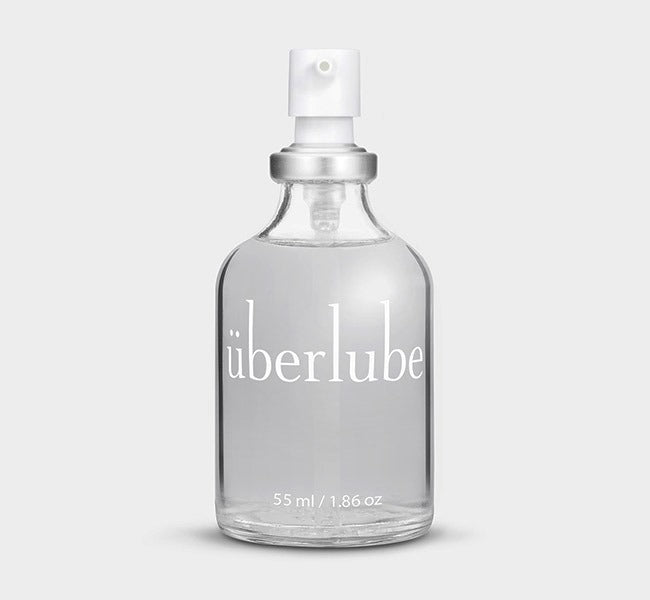
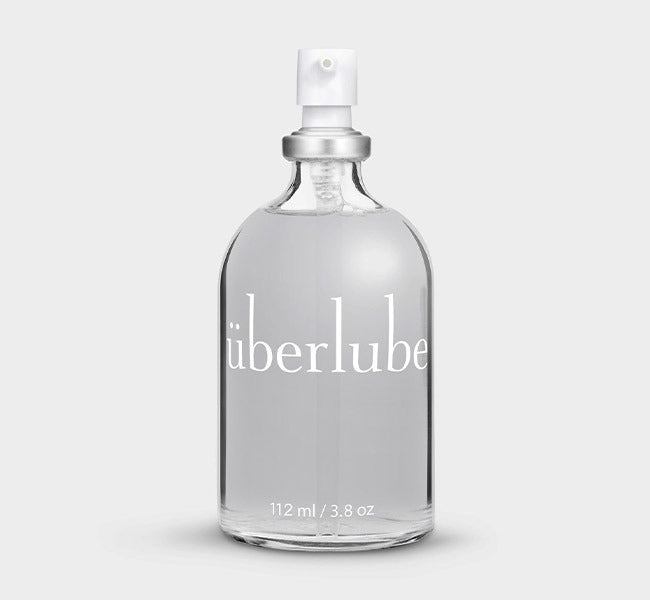
Empower joy with our signature bottle. The simple, yet elegant glass bottle looks handsome on your bedside table.
Überlube is uniquely designed to transfer sensation while safely reducing friction - never wet or sticky.
Couldn't load pickup availability
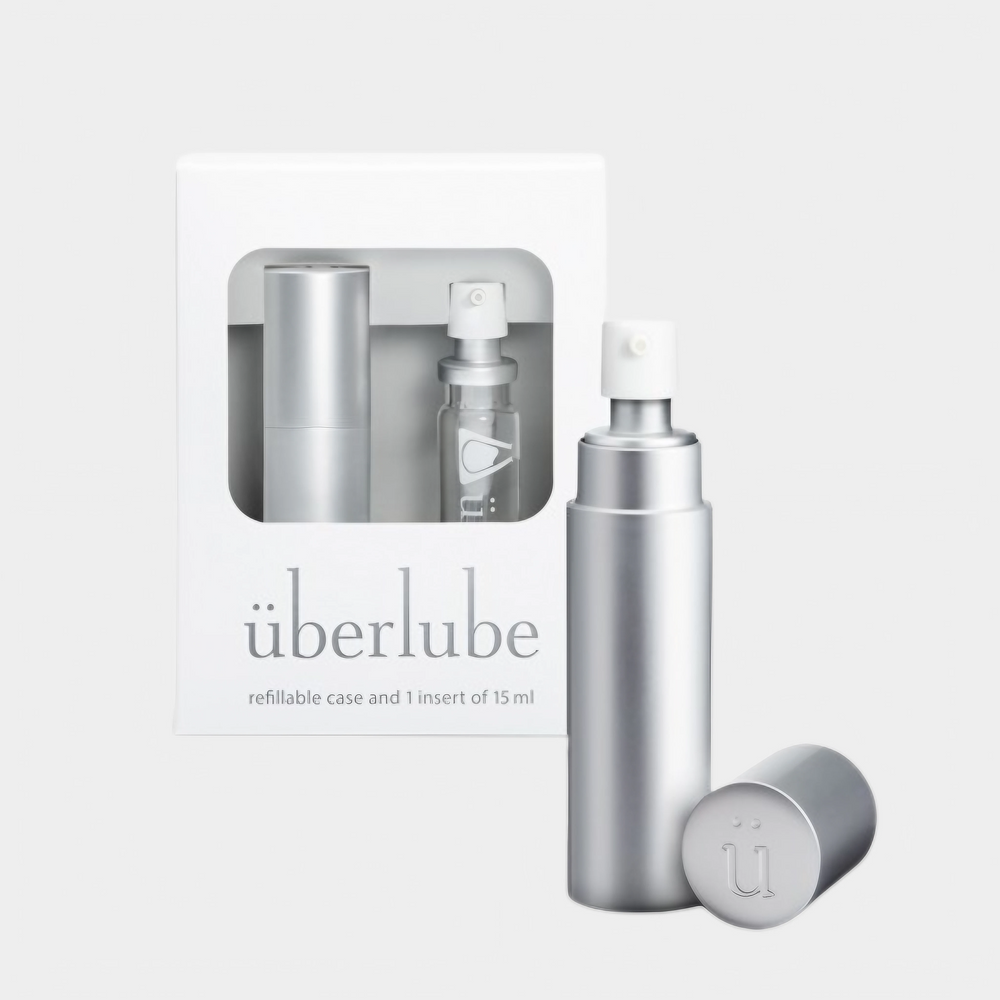
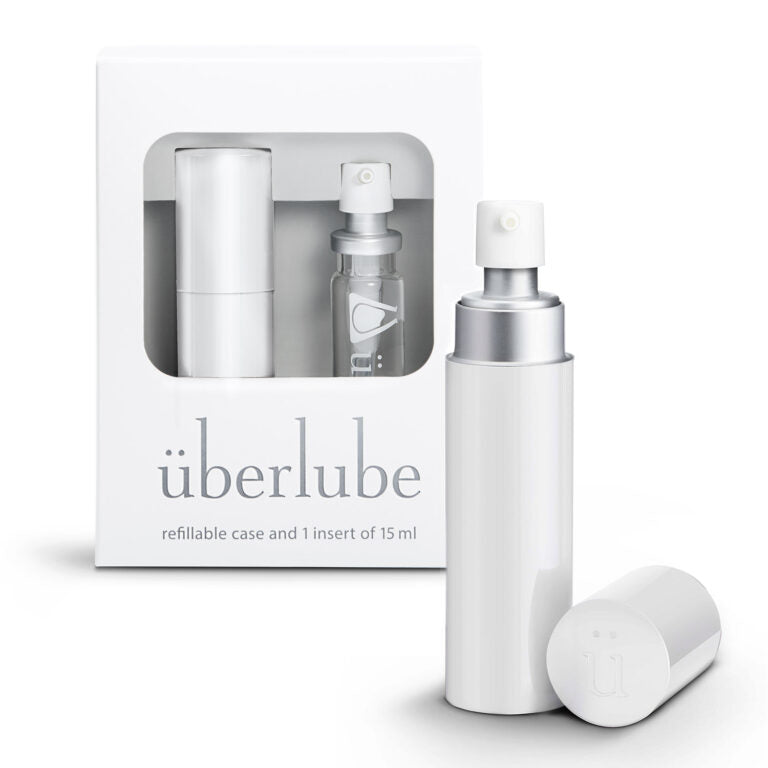
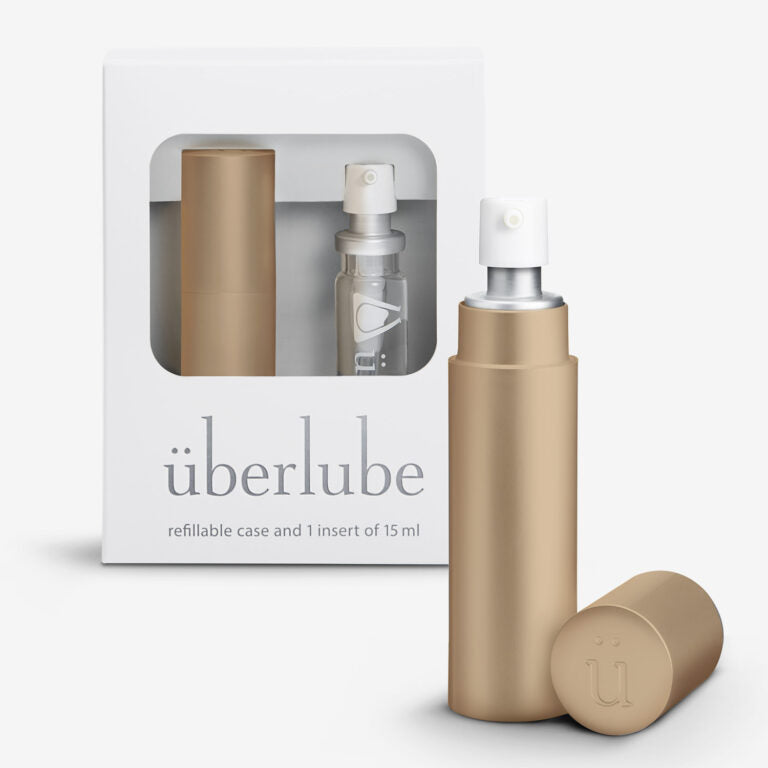
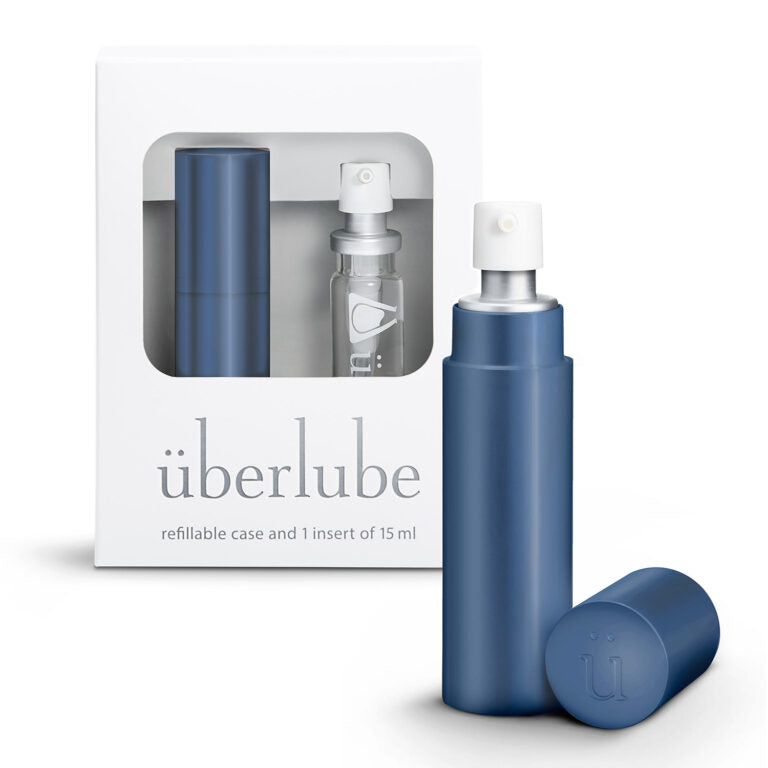
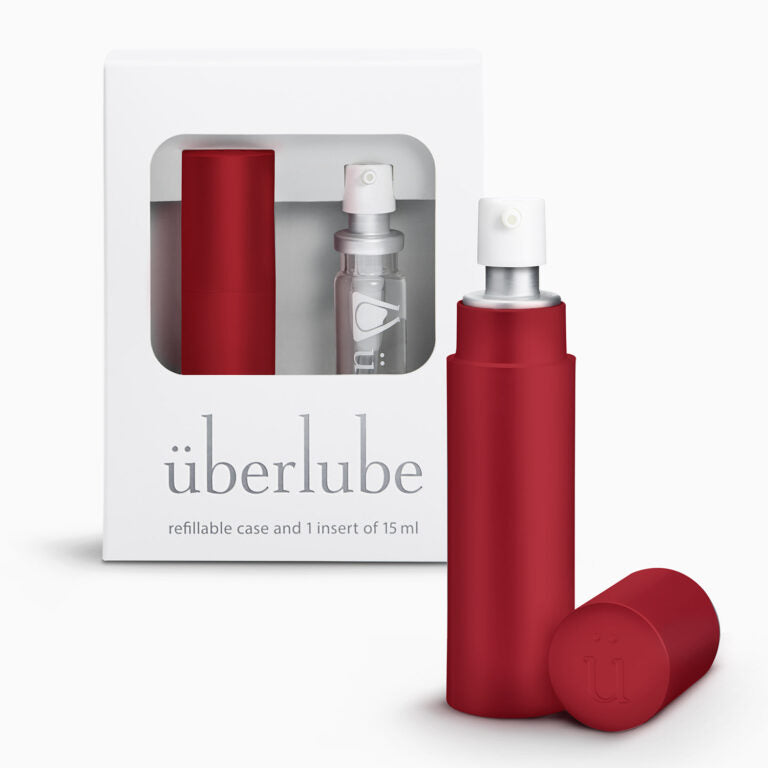
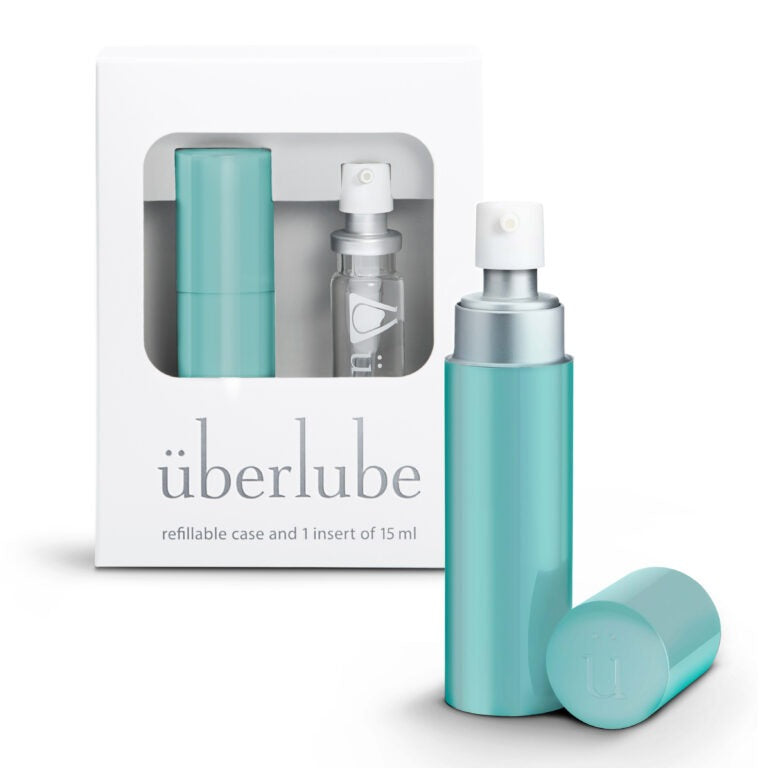
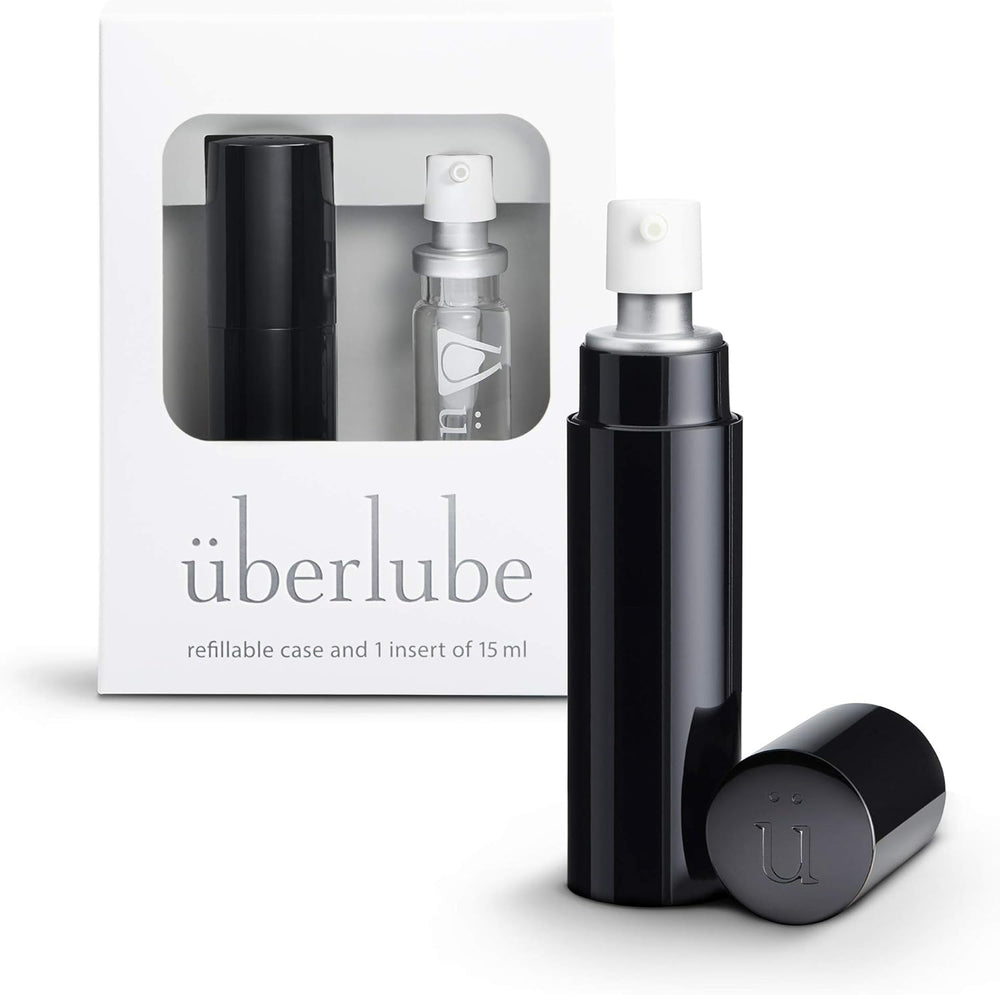
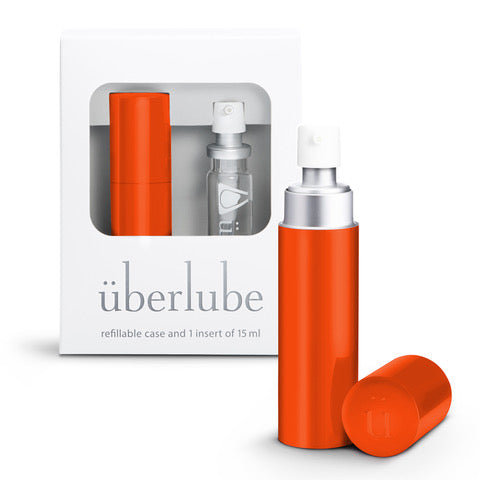
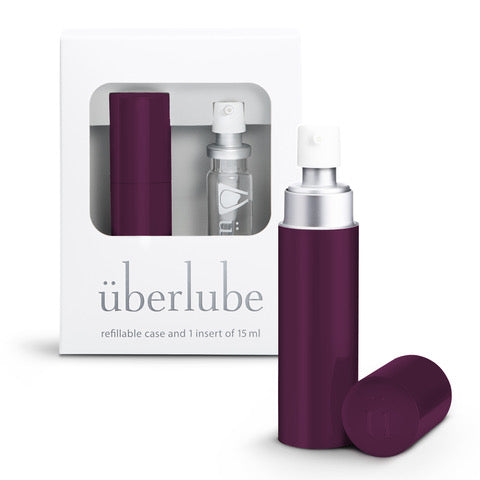
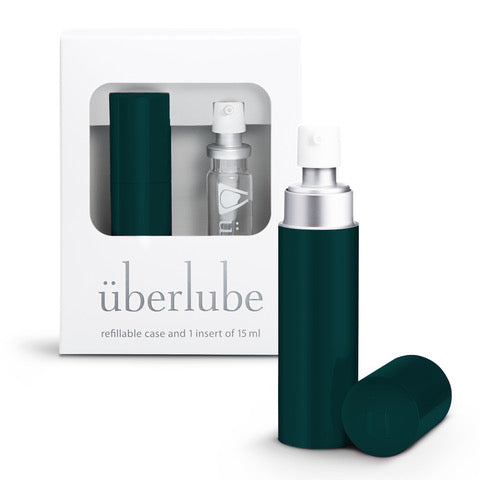
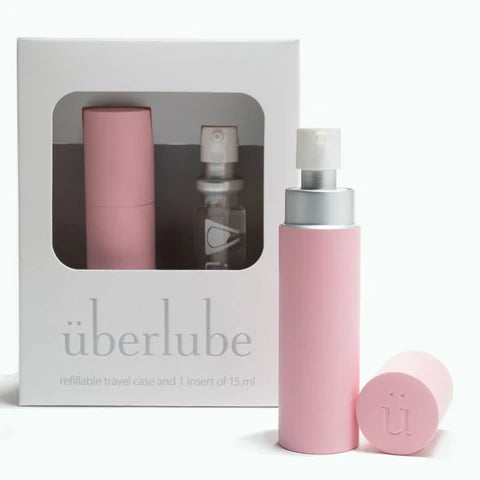
Perfect for your purse, pocket, gym bag, or carry-on luggage. Choose your favorite color. Refill the traveler case with specially-designed cartridges. Now you can have the joy of überlube at home and away.
Couldn't load pickup availability
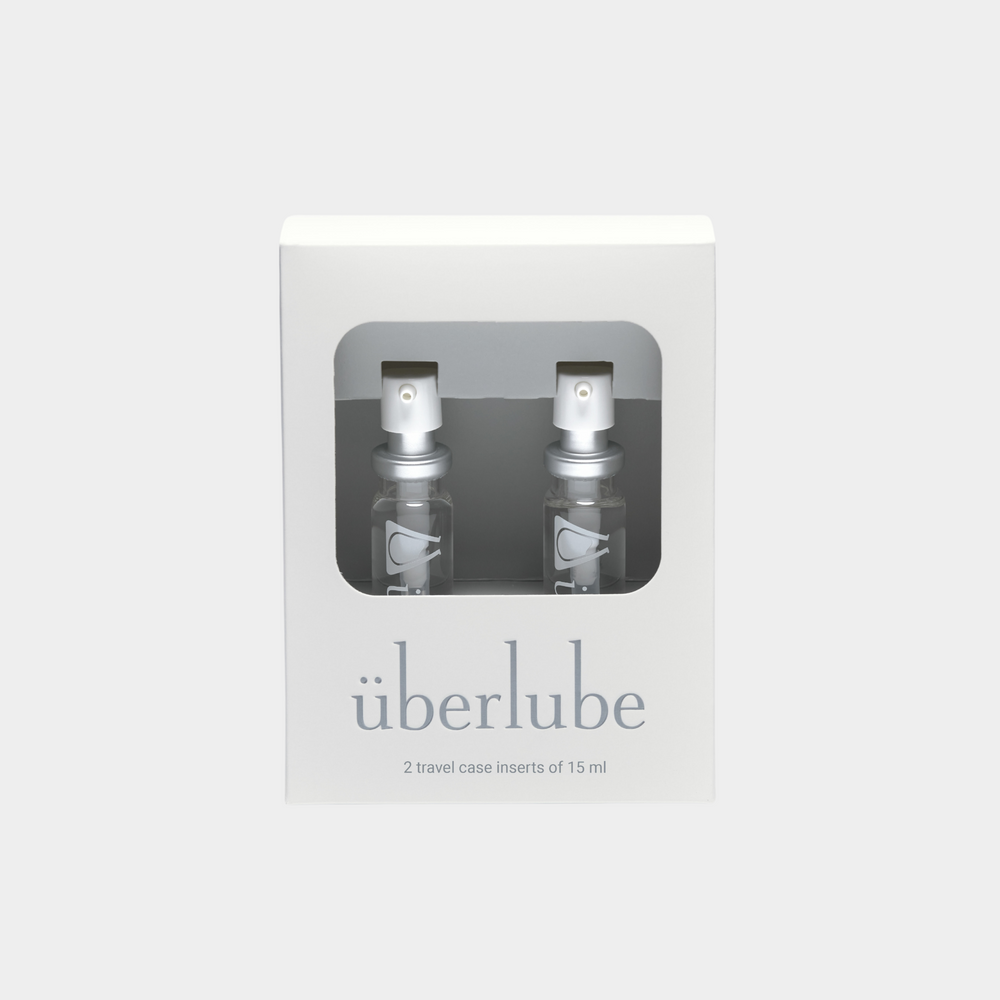
Glass refill cartridges for the Good-to-Go traveler. 2-15ml cartridges per pack.
Couldn't load pickup availability